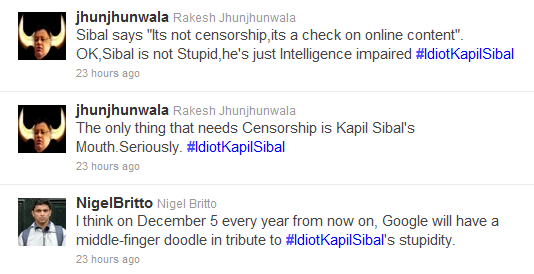Social media accounts of woman suing hospital to stay private
St. Paul’s Hospital in Vancouver and some of its doctors got sued by a patient who claims that she suffered a stroke due to malpractice during an operation. The stroke caused cognitive impairment of her thinking process and has negatively affected her social life, she claims. The defendant doctors applied to gain access to her Facebook and Twitter accounts, as well as her laptop computer, iPhone and digital camera in order to probe her online and digital social life.
But in a ruling released on Tuesday, B.C. Supreme Court Master Grant Taylor dismissed the defendants’ application, saying the defendants should not be given “carte blanche to troll through the plaintiff’s correspondence.”
Delhi threatens crackdown on social media
Free speech is under pressure as India has threatened to take action against sites like Facebook, Google and Twitter, if they refuse to remove blasphemous and politically inflammatory material from their sites. Kapil Sibal, India’s telecommunications minister, has suggested that online content should be pre-screened and that social media sites need to find mechanisms to monitor and block the release of “offensive material”.
The controversial suggestion sparked a frenzy of online comments, with the hashtag #IdiotKapilSibal becoming a trending topic in India on Tuesday. Read more here and here.
China’s tweeting cops blog to keep peace
Micro blogging is catching on fast in China. The local Twitter-like networks Sina Weibo and Tencent Weibo now have some 250m and 300m registered users, respectively.
Sina Weibo has launched a government edition and, so far, close to 19,000 officials and government departments have started tweeting, according to a report published last month. With more than 5,000 accounts, the police have been the most enthusiastic adopters. The tweeting Beijing police found that even in China, broadcasting on micro blogs doesn’t work very well:
“In the beginning, we put our press releases out there in bits and pieces, but people found it was too official,” says Mr Yang. “We had to learn to come up with things closer to their lives.”
